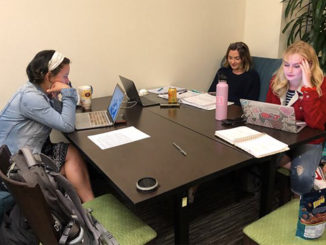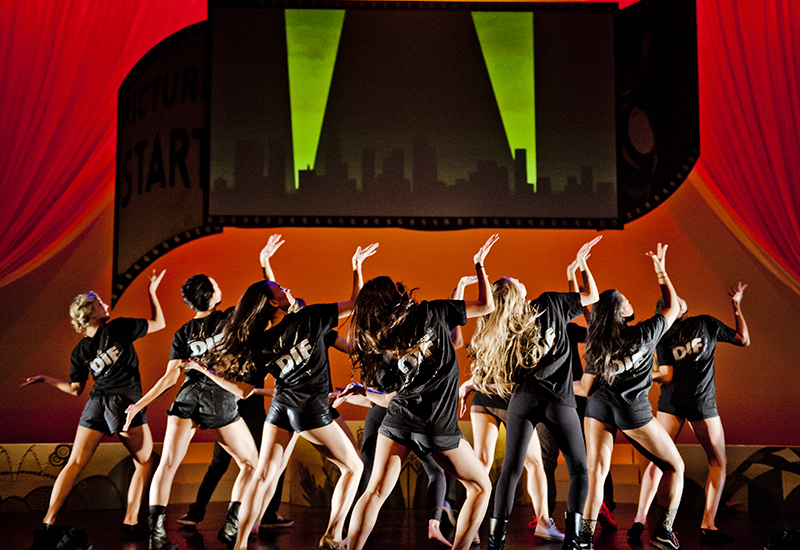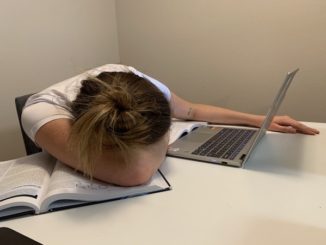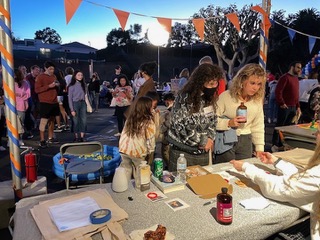
Pepperdine’s Latino Student Alliance hosts monthly meetings to engage members in conversations about Hispanic heritage.
Members have watched slideshows on relevant political events in Latin X countries like abortion legislation in Mexico. They have also hosted an essay contest to give members an opportunity to share their backgrounds.
“I think knowledge is power as far as activism and letting people know about things that are going on,” said Anahi Casas Perez, senior music major and co-president of the Latino Student Alliance.
Many Pepperdine clubs participate in service and activism to fulfill their missions and improve their communities. Clubs strive to create a safe space for their members, challenge false narratives surrounding their identities and engage with the student body.
Creating a safe space
As an act of service for others in their communities, Pepperdine clubs that are centered around identity work to create a safe space for their members to feel heard and supported.
As of fall 2020, roughly half of the students enrolled are white, according to Pepperdine’s Office of Institutional Effectiveness, This can lead students from other ethnicities to feel marginalized on campus, and this is why some of the clubs strive to create an accepting, supportive community.
“We want to create a safe space for the Latin X community and space where they feel they can get involved,” Perez said.
The Black Student Association similarly makes space for students.
“On campus, we were very involved in action and service related to bringing more diversity and inclusion to the campus and honoring people who have been harmed,” said Olivia Robinson, assistant director of Hub for Spiritual Life, who was a member of the Black Student Association when she was a student.
Challenging the narrative
Clubs also work to change the narrative and address assumptions about them.
The main goal of the Feminist Club at Pepperdine is to break down negative connotations that surround feminism as the club focuses on gender equality.
“I think a lot more people believe in feminism than the same number of people that would say they’re a feminist,” said Ivy Leroux, president of the Feminist Club and senior economics and psychology major.
Hope Lockwood, president of Crossroads and junior English and philosophy major, believes that members of Crossroads have been thrown into the position of being student activists and she would like to move away from that label and just support their community as a social club.
“We’re kinda like in an odd spot right now and it’s a great spot to be in where the queer and trans community at Pepperdine has gotten so large that there no longer really needs to be a gay club that’s constantly advocating for them,” Lockwood said.
Clubs have also been involved in partnership events with Greek Life on campus. The Feminist Club had a joint meeting with a Pepperdine fraternity, Sigma Phi Epsilon, to talk about toxic masculinity and rape culture. They also met with Kappa Alpha Theta to talk about how sororities can better themselves by being centralized on women empowerment.
Engaging the student body
Pepperdine clubs often host events on campus that range from fun social gatherings for people to get to know each other to service opportunities.
There are often club meetings to plan the events, which gives members an opportunity to connect and work together. Sometimes clubs will collaborate on events.
The Latino Student Alliance partnered with the Black Student Association and Crossroads to plan a Halloween event this fall.
“We are partnering with BSA and Crossroads, which enables people with intersectional identities to be able to feel represented because all of their clubs are there,” Perez said.
The Green Team at Pepperdine wants to increase their interaction with the student body. Their main focus is educating others about sustainability. They strive to convince people to change their actions or to inform others about how bigger corporations and factors create climate change. One way the club engages in service is through beach clean-ups.
“Because we live so close to the ocean, sustainability is really an important topic,” said Jordyn Regier, senior biology major and Inter-Club Council representative for the Green Team. “We did a beach clean-up last week and then we are going to do another one in a couple weekends.”
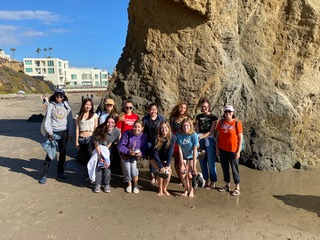
Collaborating with organizations
To reach communities off campus, some clubs have partnered with or plan to partner with organizations to host fundraisers, food or clothing drives, and to raise awareness on relevant issues in the surrounding community.
The Feminist Club partnered with Panhellenic to raise money to donate to a Santa Monica women’s shelter. Pepperdine’s Student Wellness Advisory Board and the Feminist Club collaborated with Title IX on a take back the night event discussing sexual abuse. They also plan to host a fundraiser with the Student Wellness Advisory Board for a domestic abuse shelter called House of Ruth.
The Latino Student Alliance is looking to increase their involvement in the Malibu community. They would like to get involved in volunteering with voter registration, vaccine information and with the Malibu Labor Exchange.
“It’s a matter of making a presence in that community and giving back to the community,” Perez said.
Crossroads does not actively collaborate with any outside organizations but provides resources to their members and the Pepperdine community, Lockwood said. Crossroads members have participated in the AIDS walk in Los Angeles each year and they are interested in doing more volunteering on and off-campus moving forward.
A lot of the club’s members are already actively engaged in service outside of the club.
“It’s kinda fun to be like involved with people who have service linked so closely with their identities and who want to pursue that in a grander scheme,” Lockwood said.
Individuals from Crossroads are involved in Step Forward Day and organizations like School on Wheels, Jumpstart and Path.
Support for the clubs
The Hub for Spiritual Life serves as a vehicle that can connect clubs with community partners and organizations, Robinson said.
“We not only want to provide a pathway for students to get plugged in and involved but also have those conversations that help them to fully understand the meaning of service,” Robinson said. “Who they are serving and why these service needs exist, so that way students have a holistic understanding of the spaces they’re entering or of the people that they are serving.”
The Hub for Spiritual Life works to engage clubs in conversations about the meaning of service and why they are serving, Robinson said.
Regan Schaffer, director of Pepperdine’s Nonprofit Leadership Collaborative, advisor of the nonprofit management minor, and divisional dean of Business, advocates for and wants to prepare students to be engaged in meaningful service. She believes that it is important for clubs to understand why they are engaging in the service.
“I would challenge any of us, myself included, to ask, ‘Why are we doing this?’ Schaffer said. ‘Who is involved?’ ‘Who’s voices are involved?’”
Whether the clubs are focused on the community on or off-campus, there are always improvements to be made.
“Our level of engagement is pretty high, but I wonder how deep it is. And that’s what I would push for,” Schaffer said. “I don’t know that it’s so important we have lots going on as much as it might be more important that there’s an ongoing relationship and commitment and desire to really know and have an authentic dynamic happening with where we go to serve.”
Olivia Formato completed the reporting for this story in Jour 241 under the supervision of Dr. Christina Littlefield and Dr. Theresa de los Santos. Dr. Littlefield supervised the web version of the story. Dr. de los Santos supervised the visual package.

